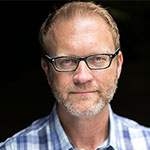Secretary

Brad D. Strawn, Ph.D
Pasadena, CA
Fuller Seminary and Fuller School of Psychology & Marriage and Family Therapy
- Eveyln and Frank Freed Chief of Spiritual Formation and Integration
- Dean of the Chapel,
- Chair of Integration of Psychology and Theology
- Professor of Clinical Psychology
Education
BA (Psychology) – Point Loma Nazarene University
MAT (Theology) – Fuller Seminary
PhD (Clinical Psychology) – Fuller School of Psychology & Marriage and Family Therapy)
Licensure
Clinical Psychologist, CA
Professional Memberships
CAPS (member since 1999)
APA Division 39
Fellow in the International Society for the Study of Science and Religion
Bio
Brad D. Strawn, Ph.D. is the Evelyn and Frank Freed Chief of Spiritual Formation and Integration, Dean of the Chapel and Professor of Clinical Psychology at the Fuller Graduate School of Psychology. He holds degrees in theology and psychology and has advanced training in psychoanalytic psychotherapy. Brad regularly publishes at the intersection of psychology and theology including co-editing Spiritual Diversity in Psychotherapy: Encountering the Sacred (2022; APA: with Steve Sandage), Christianity and Psychoanalysis: A New Conversation (2014; IVP: with Earl Bland), co-authoring Enhancing Christian Life: How Extended Cognition Augments Religious Community (2020; IVP with Warren Brown), and The Physical Nature of Christian Life: Neuroscience, Psychology & the Church (IVP; 2012 with Warren Brown). Brad has published numerous articles and guest edited a number of special volumes of various journals. Brad is a consulting editor of the Journal of Psychology & Christianity and Associate Editor of the Journal of Psychology and Theology. Brad is a licensed psychologist, maintains a private practice in Pasadena and is an ordained minister. Brad is a member of CAPS, APA Division 39 and a Fellow in the International Society for the Study of Science and Religion.
Vision for CAPS
My vision for CAPS is to continue to enhance the quality of academic scholarship and to increase the diversity of member representation. I am particularly interested in increasing the involvement of younger and diverse integrative scholars. We must find creative ways to engage both scholars and practitioners and harness our best ideas to create new and unique presentation formats at our conferences, and online, that increase dialogue among members. People come to CAPS conferences for a sense of community, conversation and connection. To this end, I’m very excited about the chance to begin to meet again in person. I continue to believe that CAPS can be an important professional “integrative home” for many!

